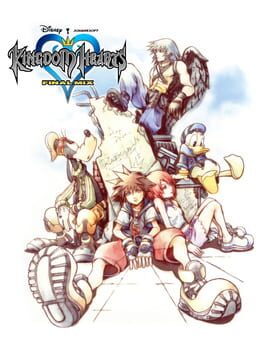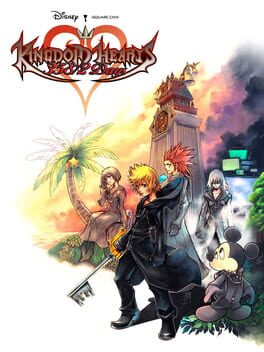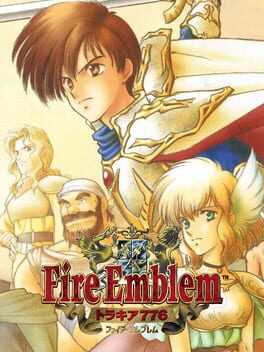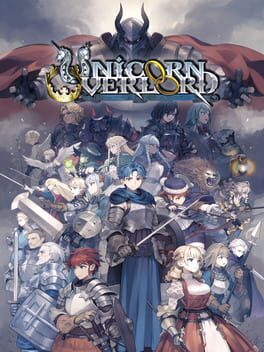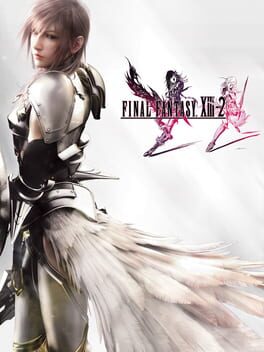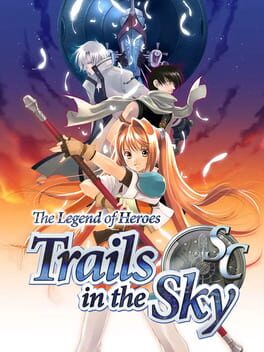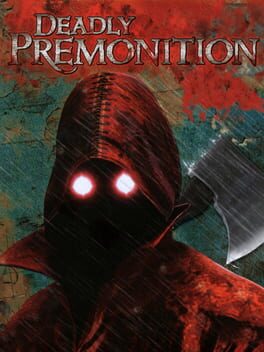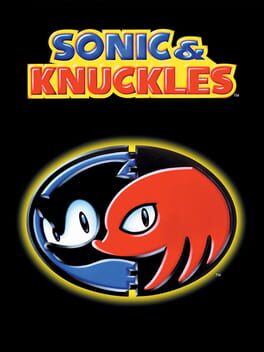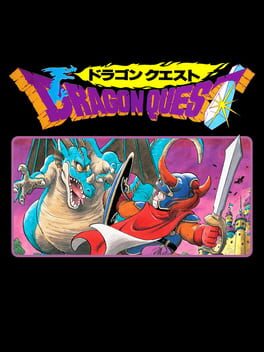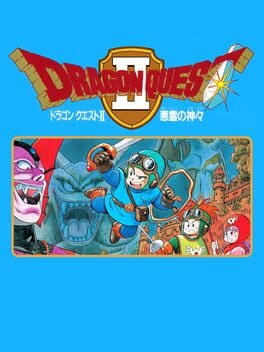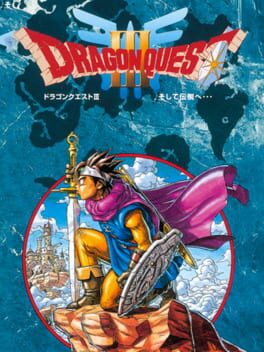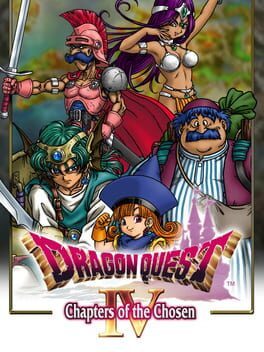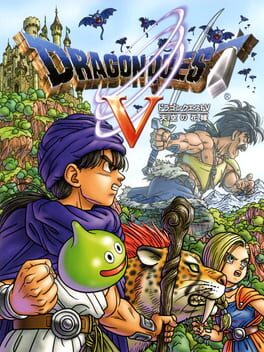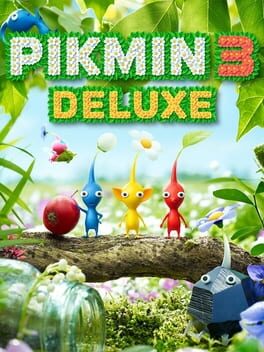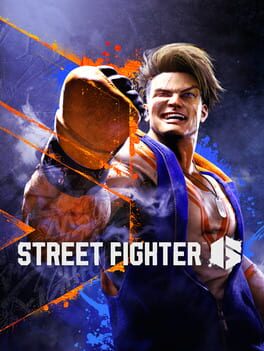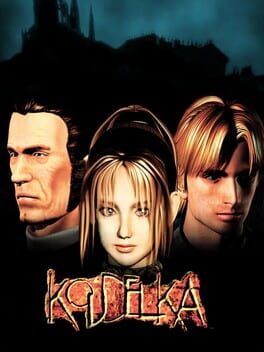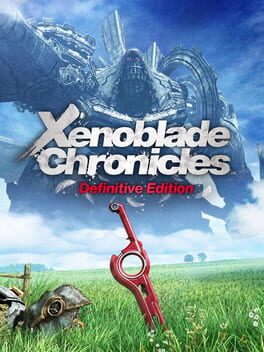awgustawgust
55 reviews liked by awgustawgust
stability is a hard concept to understand as a child.
when actions lack permanence, and attachments are just as easily formed as they are broken, one's own self-identity becomes an oyster - malleable, yet derivative of the influences around you.
kingdom hearts is able to speak effectively to younger demographics because it understands this. critically, crossover media operates under a very similar principle - when derivative in almost every sense, it needs to prove it's individuality to attract fans beyond just brand recognition.
it just so happens kingdom heart's original ideas exist in the crossfire of one of the most bizarre media collaborations ever. this is a fever dream/nightmare of a product that completely lacks the appealing characterisations from either ip in order to consolidate itself.
what you'll find from this attempted synergy of 3 original storytelling philosophies is a gross mismatch of many ideas that are rarely, if ever, fine-tuned. this results in the vast majority of the experience lacking in cohesive gameplay systems, or an interesting narrative structure. there is almost nothing redeemable in the core structural loop, missing the mark on just about every detail that made it's various 3d game influences still appeal over a quarter of a century after.
it's electrifying.
the week i spent with this game was one of the most interesting media experiences i think i've ever had. i love this game, because even through the faults of everything i've discussed, an undeniable character still exists behind it.
the experience of being a child lacks a foundation. emotions lack the self intelligence to be comprehended, and the faults of people you interact with are just as obvious to you as they are blind. you don't initially understand the people close to you, but there's a natural tendency in everyone to keep them close anyway. thus, the small differences in everything around you births a new perspective. a self-identity is born.
when actions lack permanence, and attachments are just as easily formed as they are broken, one's own self-identity becomes an oyster - malleable, yet derivative of the influences around you.
kingdom hearts is able to speak effectively to younger demographics because it understands this. critically, crossover media operates under a very similar principle - when derivative in almost every sense, it needs to prove it's individuality to attract fans beyond just brand recognition.
it just so happens kingdom heart's original ideas exist in the crossfire of one of the most bizarre media collaborations ever. this is a fever dream/nightmare of a product that completely lacks the appealing characterisations from either ip in order to consolidate itself.
what you'll find from this attempted synergy of 3 original storytelling philosophies is a gross mismatch of many ideas that are rarely, if ever, fine-tuned. this results in the vast majority of the experience lacking in cohesive gameplay systems, or an interesting narrative structure. there is almost nothing redeemable in the core structural loop, missing the mark on just about every detail that made it's various 3d game influences still appeal over a quarter of a century after.
it's electrifying.
the week i spent with this game was one of the most interesting media experiences i think i've ever had. i love this game, because even through the faults of everything i've discussed, an undeniable character still exists behind it.
the experience of being a child lacks a foundation. emotions lack the self intelligence to be comprehended, and the faults of people you interact with are just as obvious to you as they are blind. you don't initially understand the people close to you, but there's a natural tendency in everyone to keep them close anyway. thus, the small differences in everything around you births a new perspective. a self-identity is born.
(contains very light spoilers)
Pure insanity.
Stephanie Sterling put it really well:
"It's like somebody told the dev team this was the last videogame that was ever going to be developed for the rest of time. So if they had any ideas, they better smoke 'em while they got 'em."
Rebirth is a game of variety. Every new areas brings its own unique mechanics and minigame. And they never feel stale, or like they are playing it safe, with completely new ideas all over the board.
Are any of these perfect? No, a lot of them are pretty janky. But even I get to a bit that's kinda "meh", I'm still so happy to see that they Really tried, all the time, everywhere.
While still following a pretty linear story, the game feels more open than Remake. With several open world areas to explore, encountered progressively through the story at infrequent intervals (here too, the game feels unpredictable).
I was initially worried that those ares would end up feeling too much like I was just going mindlessly from one point of the map the next... And I was only half right. I was at least able to grow in familiarity with each area over time, which honestly felt really nice. In that way, I do feel like the game gets a lot better if you limit your fast travels to a minimum... Here, the summon crystal are what feel the most out of place. It really feels like you're just going to some random place for the purpose of pressing a button and just moving on your way. Even with the small blurb of story you get for each summon, they end up feeling quite detached from the world and its lore.
I really like the part near the end where all the various areas end up getting connected into a single seamless open world, although it had the unfortunate effect of also making the world feel a lot smaller. You can compare that to old FF world maps which manage to keep a grounded scale, by showing the world maps in a different style than the rest of the exploration. But I don't really know how they could have implemented this and kept the full realism that FF7 Re is going for.
I also wish they did a bit more ocean exploration.
That dedication to being all over the place sometimes works against itself when it comes to telling its story. Some really serious moments get immediately juxtaposed to silly one in quite jarring ways. You have some truly evil characters also being depicted as aloof in ways that leave me confused as to how the game expects me to feel about them. And the environmental message of the game feels weird juxtaposed to the great show of playfulness that is the Golden Saucer, which is itself shown to be very destructive on the environment.
Even here though, this mess isn't all bad. The way the party jumps from adventure to adventure somewhat reminds me of old hero tales, where the idea of the story are more episodic in nature, seeing how the hero will handle this new situation they find themselves in. And FF7 Re is very much a character driven story.
And what character they are... I can honestly say that I love... most of the character of the main cast. Of the main party, there is only Yuffie that I only like instead of love, and even then, she still had scenes that touched me deeply. Outside of the main party though, I really dislike Chadley, which is unfortunate since it's one of the (if not The) biggest ally that we have outside the party.
As a final note. The game also features an amazing soundtrack. I had to stop on several occasion just to take some time and listen to the ambient music. Although I don't think this soundtrack is used super effectively, I wondered on several occasion, uh, why would they use this character's theme Here, when they don't really have any connection to this place?
Now... What comes next? Really... The whole ending chapter had me feeling all kind of ways, and I once again have no idea what will come next, and Rebirth taught me that having any kind of expectations would be pointless. So I'll just wait and see, it's going to be a long wait until the final element of the trilogy.
Pure insanity.
Stephanie Sterling put it really well:
"It's like somebody told the dev team this was the last videogame that was ever going to be developed for the rest of time. So if they had any ideas, they better smoke 'em while they got 'em."
Rebirth is a game of variety. Every new areas brings its own unique mechanics and minigame. And they never feel stale, or like they are playing it safe, with completely new ideas all over the board.
Are any of these perfect? No, a lot of them are pretty janky. But even I get to a bit that's kinda "meh", I'm still so happy to see that they Really tried, all the time, everywhere.
While still following a pretty linear story, the game feels more open than Remake. With several open world areas to explore, encountered progressively through the story at infrequent intervals (here too, the game feels unpredictable).
I was initially worried that those ares would end up feeling too much like I was just going mindlessly from one point of the map the next... And I was only half right. I was at least able to grow in familiarity with each area over time, which honestly felt really nice. In that way, I do feel like the game gets a lot better if you limit your fast travels to a minimum... Here, the summon crystal are what feel the most out of place. It really feels like you're just going to some random place for the purpose of pressing a button and just moving on your way. Even with the small blurb of story you get for each summon, they end up feeling quite detached from the world and its lore.
I really like the part near the end where all the various areas end up getting connected into a single seamless open world, although it had the unfortunate effect of also making the world feel a lot smaller. You can compare that to old FF world maps which manage to keep a grounded scale, by showing the world maps in a different style than the rest of the exploration. But I don't really know how they could have implemented this and kept the full realism that FF7 Re is going for.
I also wish they did a bit more ocean exploration.
That dedication to being all over the place sometimes works against itself when it comes to telling its story. Some really serious moments get immediately juxtaposed to silly one in quite jarring ways. You have some truly evil characters also being depicted as aloof in ways that leave me confused as to how the game expects me to feel about them. And the environmental message of the game feels weird juxtaposed to the great show of playfulness that is the Golden Saucer, which is itself shown to be very destructive on the environment.
Even here though, this mess isn't all bad. The way the party jumps from adventure to adventure somewhat reminds me of old hero tales, where the idea of the story are more episodic in nature, seeing how the hero will handle this new situation they find themselves in. And FF7 Re is very much a character driven story.
And what character they are... I can honestly say that I love... most of the character of the main cast. Of the main party, there is only Yuffie that I only like instead of love, and even then, she still had scenes that touched me deeply. Outside of the main party though, I really dislike Chadley, which is unfortunate since it's one of the (if not The) biggest ally that we have outside the party.
As a final note. The game also features an amazing soundtrack. I had to stop on several occasion just to take some time and listen to the ambient music. Although I don't think this soundtrack is used super effectively, I wondered on several occasion, uh, why would they use this character's theme Here, when they don't really have any connection to this place?
Now... What comes next? Really... The whole ending chapter had me feeling all kind of ways, and I once again have no idea what will come next, and Rebirth taught me that having any kind of expectations would be pointless. So I'll just wait and see, it's going to be a long wait until the final element of the trilogy.
so, big shocker here considering i log and review japanese role-playing games on the internet, i'm autistic. this is a facet of my life that i wasn't comfortable with for a long time; i remember as a child being confused about what my diagnosis meant, and i remember as a teenager denying my diagnosis. something most people with autism will say is that there's not a lot of art out there that really captures the experiences we have, which often makes it really difficult to compare for people. you're stuck with either comparing yourself to robotic characters, or cheap one dimensional versions of autism written by neurotypicals. while i was playing 358/2 days, all i could think of was that if i had played this when i was younger, it would have really stuck with me as a formative experience, and one that i could use as a point of comparison for how i feel.
roxas is a really odd protagonist; when we're first introduced to him, he can barely speak, and most concepts don't come naturally to him. he's a Nobody, a being that is missing a heart, and therefore isn't supposed to be capable of emotion. it's not that roxas is a husk or has no personality; he's just been stripped of anything resembling a self, and has no frame of reference for what that may be. what's beautiful about days' narrative, to me, is the way roxas' character writing closely resembles concepts like social masking, which were so integral to my life when i was younger. roxas does things because he knows they're expected of him to do. he doesn't understand what a friend is, but he sees how friends are supposed to act, and so that's how he acts. it's all learned behaviors with roxas, the things he thinks of naturally are things he's not "supposed" to. this is shown excellently with the ice cream motif, which stays consistent throughout nearly all the repetition in this game. i really can't believe that nomura is a talented enough character writer to make a bar of ice cream from disney sea into an effective metaphor for life.
358/2 in general touches very well on themes of authority figures defining identity; we see so frequently that roxas and xion are thrown aside or deemed failures for acting in ways that don't benefit the bottom line. their identity is trampled upon and diminished solely because their identity isn't convenient. these kids exist for no reason other than to work, and their job sure doesn't give a damn if they exist. dissociation is touched upon quite a lot as well; it's a very odd blend of stuff that occasionally borders on denpa with childhood melancholy that only KH is really capable of.
so after all that discussion on the story, how's the game? pretty bad! 358/2's comboing doesn't feel very good, the bosses are extremely slow, easy, and tanky, and magic trivializes most sections while also feeling like total shit to use. quite a fair amount of writing has been done about 358/2 as a game that's "bad on purpose", and i think that's giving it too much credit and not enough. the stuff that's bad about 358/2 days isn't the repetitive nature of the missions, nor is it even the trivial nature of many of the missions you receive. the problem is that everything takes way too long and the bosses especially are crazy timesinks. it's forgiveable because this is a game you play in 10-30 min intervals, but some parts of this game are up there as some of the most boring experiences i've ever had with a game. there is a case to make for some ludonarrative elements here, but it's pretty far from feeling intentional.
roxas is a really odd protagonist; when we're first introduced to him, he can barely speak, and most concepts don't come naturally to him. he's a Nobody, a being that is missing a heart, and therefore isn't supposed to be capable of emotion. it's not that roxas is a husk or has no personality; he's just been stripped of anything resembling a self, and has no frame of reference for what that may be. what's beautiful about days' narrative, to me, is the way roxas' character writing closely resembles concepts like social masking, which were so integral to my life when i was younger. roxas does things because he knows they're expected of him to do. he doesn't understand what a friend is, but he sees how friends are supposed to act, and so that's how he acts. it's all learned behaviors with roxas, the things he thinks of naturally are things he's not "supposed" to. this is shown excellently with the ice cream motif, which stays consistent throughout nearly all the repetition in this game. i really can't believe that nomura is a talented enough character writer to make a bar of ice cream from disney sea into an effective metaphor for life.
358/2 in general touches very well on themes of authority figures defining identity; we see so frequently that roxas and xion are thrown aside or deemed failures for acting in ways that don't benefit the bottom line. their identity is trampled upon and diminished solely because their identity isn't convenient. these kids exist for no reason other than to work, and their job sure doesn't give a damn if they exist. dissociation is touched upon quite a lot as well; it's a very odd blend of stuff that occasionally borders on denpa with childhood melancholy that only KH is really capable of.
so after all that discussion on the story, how's the game? pretty bad! 358/2's comboing doesn't feel very good, the bosses are extremely slow, easy, and tanky, and magic trivializes most sections while also feeling like total shit to use. quite a fair amount of writing has been done about 358/2 as a game that's "bad on purpose", and i think that's giving it too much credit and not enough. the stuff that's bad about 358/2 days isn't the repetitive nature of the missions, nor is it even the trivial nature of many of the missions you receive. the problem is that everything takes way too long and the bosses especially are crazy timesinks. it's forgiveable because this is a game you play in 10-30 min intervals, but some parts of this game are up there as some of the most boring experiences i've ever had with a game. there is a case to make for some ludonarrative elements here, but it's pretty far from feeling intentional.
kingdom hearts is probably the most controversial JRPG franchise of all time. it's very common to see non-fans say they can't take it seriously and it's influence ruined franchises they prefer, and it is equally common to see fans say it changed their life and brings them to tears to think about. i think i come somewhere in the middle; kingdom hearts 1 is a pretty moving and cute story for it's target demographic, but it has a lot of clear growing pains that i feel could have been better addressed. the story is probably what i'd single out as the biggest strong point of kh1, it's a very pleasant little story preaching self-belief and perseverance with a lot of fun character moments. the disney stuff, for me, doesn't exactly help but doesn't really hurt. donald and goofy are enjoyable party members that don't really feel too far off from your standard comic relief party members in final fantasy games such as rikku or cait sith. i'm not sure if i'd say the friendship of the party feels especially believable by the end, but it works for the type of story kh1is trying to get across. the original characters are all also pretty fun; i'm not much of a fan of sora, since he feels very stock shonen protagonist, but riku and kairi are both fairly interesting characters. the (unintentional?) gay subtext with sora and riku is definitely the most interesting part of the character interactions in this game, it really oozes out of almost everything riku says and makes things between him and sora a bit more complicated than it initially seems. i felt that the big weakness of kh1's story came down largely to it's focus on the disney elements. many of the worlds are very stripped down versions of movie plots, which aren't really satisfying on their own and aren't really great fanservice, imo. several of my favorite disney movies actually are in kh1, but the only one i felt really happy with the representation for was nightmare before christmas. the good part of this is that the worlds are pretty short and breezy, with very little story, so if you aren't much of a disney fan they aren't tedious or anything. the bad part of this is that the overarching plot still does involve a lot of disney elements up until the last quarter or so, so if you want more meat you're going to be waiting for a while.
where i'm more mixed on kh1 is the gameplay. i played on proud mode, because i wanted to fully engage with the combat and uh... that was a mistake! not because i had too much trouble with the combat, but because kh1 has pretty minimal depth to it's combat, and the boss design can get downright atrocious. the pot centipede, giant ursula, genie jafar, chernabog, basically all of the final bosses, dragon maleficent.. there's so many fights in this game that i wouldn't call hard necessarily but would really call cheesy or boring. for most of the larger bosses the recommended strategy from experienced players is to just mash on them with aero/ra/ga and spam heals when you can with leaf bracer. i only really struggled with a handful of fights, but i would have a lot of trouble naming fights that i struggled on where the difference maker ended up being my skill rather than missing a specific spell or not using a specific summon that trivialized it. things reach a head after the first visit to hollow bastion, because beyond that point kh1 really loves throwing bosses with inflated health bars at you, and in the worst cases, those bosses have a vulnerability window of maybe 2-3 attacks if you're playing fair with them. if that sounds obnoxious and boring, that's because it is, so the recommended strategy for most of these bosses is to make sure to get aeroga and curaga and just wail on them. the room of waves of heartless being spawned on you is also just atrocious, pure chaos with very little counterplay beyond tanking. smart, aggressive play simply does not feel well-incentivized in kh1. i'd say the real peak of the game feeling challenging in a fun way would be the mid-game before you get leaf bracer, and the last fight on the first visit to hollow bastion. that fight kicked my ass a good 4 or 5 times, but it was engaging, fast, lethal, and made me want to get better. i can only hope that future kh games follow that precedent.
asides:
the ff characters in this game, imo, often didn't really act like themselves. squall, i mean leon, especially felt mischaracterized. not a big deal because the story isn't focused on them or anything but as a big fan of 8 i found it a little sad.
music is incredible, i'd mention the heartless theme, kairi's theme, the main theme, and obviously simple and clean as highlights. yoko shimomura is a great fit here, since she's experienced in music for kid's games from the mario rpg series but also has the range for more serious and heartfelt tracks.
the animation is surprisingly very high quality and emotive for a ps2 game, it seems like they really wanted to lean into disney animation principles. genie donald and goofy are all highlights in that regard
where i'm more mixed on kh1 is the gameplay. i played on proud mode, because i wanted to fully engage with the combat and uh... that was a mistake! not because i had too much trouble with the combat, but because kh1 has pretty minimal depth to it's combat, and the boss design can get downright atrocious. the pot centipede, giant ursula, genie jafar, chernabog, basically all of the final bosses, dragon maleficent.. there's so many fights in this game that i wouldn't call hard necessarily but would really call cheesy or boring. for most of the larger bosses the recommended strategy from experienced players is to just mash on them with aero/ra/ga and spam heals when you can with leaf bracer. i only really struggled with a handful of fights, but i would have a lot of trouble naming fights that i struggled on where the difference maker ended up being my skill rather than missing a specific spell or not using a specific summon that trivialized it. things reach a head after the first visit to hollow bastion, because beyond that point kh1 really loves throwing bosses with inflated health bars at you, and in the worst cases, those bosses have a vulnerability window of maybe 2-3 attacks if you're playing fair with them. if that sounds obnoxious and boring, that's because it is, so the recommended strategy for most of these bosses is to make sure to get aeroga and curaga and just wail on them. the room of waves of heartless being spawned on you is also just atrocious, pure chaos with very little counterplay beyond tanking. smart, aggressive play simply does not feel well-incentivized in kh1. i'd say the real peak of the game feeling challenging in a fun way would be the mid-game before you get leaf bracer, and the last fight on the first visit to hollow bastion. that fight kicked my ass a good 4 or 5 times, but it was engaging, fast, lethal, and made me want to get better. i can only hope that future kh games follow that precedent.
asides:
the ff characters in this game, imo, often didn't really act like themselves. squall, i mean leon, especially felt mischaracterized. not a big deal because the story isn't focused on them or anything but as a big fan of 8 i found it a little sad.
music is incredible, i'd mention the heartless theme, kairi's theme, the main theme, and obviously simple and clean as highlights. yoko shimomura is a great fit here, since she's experienced in music for kid's games from the mario rpg series but also has the range for more serious and heartfelt tracks.
the animation is surprisingly very high quality and emotive for a ps2 game, it seems like they really wanted to lean into disney animation principles. genie donald and goofy are all highlights in that regard
thracia is a game that really wants you to reexamine some behaviors and thoughts that you may have considered intrinsic to playing video games. is it worth it to strive for perfection? is fairness really the end goal of difficulty? is there really no honor in cheating? the most common statement you'll see about this game is that it's brutal, and the second most common statement you'll see about this game is that it's "just unfair to new players, but not that hard". neither of these statements are quite true; thracia is a very difficult game, and it is especially unkind to blind players, but it's paradoxically very effectively balanced. for the most part, this isn't a game where you're being put up against enemies way stronger than you, or a game where the enemies are given tons of toys you can't have. thracia is about trying to turn every disadvantage you're given into an advantage, and trying to win by choosing not to play within what the game presents as it's "rules" at all. to me, thracia feels very genuinely revolutionary in a way the prior 4 FEs, all also about revolutions, did not. the fatigue system means you are not allowed to be picky about your units, and you do not get your usual assortment of nobles and world-renown warriors. instead, you get a heck of a lot of bandits and sellswords, not to mention a handful of priests and illegitimate children. speaking of those bandits and priests, they are universally your MVPs in thracia. thracia has a very strong sense of materialism, both in it's plot and mechanics, which means that stealing and capturing weapons is simply your only option for acquiring weapons and money. this means that utility units are much stronger than in any other fire emblem game; not only because you have to steal to survive, but also because disarming is often a better option than just directly killing. why should i murder reinhardt when if i berserk him then sleep him i can get him to thin his troops and steal his gear? why should i bother fighting all these mages when i can send lifis in and just take all their books instead? this stuff brings a really interesting sense of resource management to thracia, and means that the player has theoretically nearly infinite opportunities to get good weapons, but has to gauge whether or not it's worth going for them each time they fight. this is furthered by making villages occasionally very difficult extras to get, and the addition of missable gaiden chapters help this greatly too. thracia has a very strong conception of risk vs reward; to simply clear the maps, you often have very easy and simple options, but simply clearing the maps is rarely enough. you are forced to take gambles to survive, but you are never expected to be perfect. a 100% playthrough of this game would likely increase the playtime by more than half off resets alone, but i don't think that that is a mistake or a negative. to me, thracia is rather genius in that it puts so much decisionmaking in the player's hands, and so little of that decisionmaking directly relates to killing. a good amount of your units can reliably crit, so cutting through enemies isn't something you need to worry too much about.. instead, what you're concerned with is not bleeding out on resources, making sure your units can avoid status effect spam, making sure you can have your units available when you need them. is it bullshit that you can be hit from halfway across the map by a sleep staff in enemy phase? sure. but i can silence that staffer, i can berserk them, i can steal their sleep staff.. you just have so many options, and just killing them is usually the least effective and least interesting one! in another strategy game, this sort of thing would be considered cheese, but here, it's life. you have the option to play "honorably" and fight like a man, sure, but are the enemies fighting honorably? hell no. fuck em. to me, this is exactly the sort of difficulty a strategy game should have. extremely lethal, extremely diverse, and not fair at all... but filled with options for interesting decisionmaking instead of just overstatting brute force ai. there is very little division between what you can do and what the ai can do. the defining difference is that you are not a bot.
STORY SPOILERS AHEAD
storytelling in thracia is another big strength. i think that the very restrained focus here helps a lot with character building and thematics. prior fire emblem games were all extremely grand continent-spanning high fantasy stories, which isn't a problem for those games at all, but i do feel that occasionally the macro scale of those stories meant that we could not feel the struggles of individual characters so closely. even mystery of the emblem, which does have a similar style of gameplay and a comparable story to thracia, is so zoomed out that i could hardly tell you what marth or caeda are feeling about what's happening. by contrast, leif is excellently built up, undergoing strong development through many losses. leif is someone who was born into natural conditions fit for traditional heroism, but is also someone who is given plenty reason to believe that his rebellion will only crush hope. prior lords had generally been characterized by naivety and great kindness; marth had been unable to accept that his allies had turned against him, sigurd had so much faith in the goodness of others that he ended up blind to conspiracy, celica loved alm so much that she was willing to suffer and sacrifice her cause for his sake. leif is anything but naive, and his kindness is often hardly virtuous. leif is racked with self-doubt at every turn, and when he is not, his ignorance and rash attitude bites him in the ass. he wants to save his people and repay the debts of his childhood at all costs, even though it has him taking on more than he can handle. his nobility alienates him from causes that much of his army is fighting for. many of his flaws would make him seem not so dissimilar from the friegian generals he's up against, but the important part is that leif learns from his mistakes as time goes on, and he never gives up. by the end of the game, his title of sage-lord doesn't feel farfetched. the enemy factions in thracia are also very well characterized. one detail i especially like is that the infamous thracian dracoknights rarely show up at all unless they're trying to seize an objective before you, and they're extremely lazy units. they don't leave their posts until you get in their range or split up your units, and they always leave the map when you kill their commander. this gets across very well that south thracia has little passion for the war they've been paid to fight in, they only see their alliance with the empire opportunistically. my only complaint with the story is that the final few chapters feel like a bit of afterthought or obligation story-wise, the audience just doesn't get a lot of in-universe justification for why the strategy is being executed the way it is, probably because it diverges from genealogy at this point. saving eyvel and defeating raydrik both make sense, but the loptrian church has very little personal relevance to the cast here. it didn't bother me because the last stretch of the game is sheer excellence from a gameplay perspective, but i do feel it's worth noting.
some minor notes i couldn't fit in here:
door key softlocks are really dumb and probably the single worst part of this game
chapter 12x and 14x are objectively quite poorly designed chapters for very different reasons; 12x is a chapter that feels almost deliberately designed for you to not engage with playing it, and 14x is a fog of war chapter that has long range troops and random pegasus knight spawns which can capture your units but you can't capture back. i think 14x is still effective narratively, but it's one of the only moments where i felt that thracia was sadistic in a way the player could not appropriately respond to or work around without foreknowledge or with clever strategy.
the variety in objectives is a huge plus for thracia and something i wish had been implented sooner. escape maps and survival maps are both awesome
STORY SPOILERS AHEAD
storytelling in thracia is another big strength. i think that the very restrained focus here helps a lot with character building and thematics. prior fire emblem games were all extremely grand continent-spanning high fantasy stories, which isn't a problem for those games at all, but i do feel that occasionally the macro scale of those stories meant that we could not feel the struggles of individual characters so closely. even mystery of the emblem, which does have a similar style of gameplay and a comparable story to thracia, is so zoomed out that i could hardly tell you what marth or caeda are feeling about what's happening. by contrast, leif is excellently built up, undergoing strong development through many losses. leif is someone who was born into natural conditions fit for traditional heroism, but is also someone who is given plenty reason to believe that his rebellion will only crush hope. prior lords had generally been characterized by naivety and great kindness; marth had been unable to accept that his allies had turned against him, sigurd had so much faith in the goodness of others that he ended up blind to conspiracy, celica loved alm so much that she was willing to suffer and sacrifice her cause for his sake. leif is anything but naive, and his kindness is often hardly virtuous. leif is racked with self-doubt at every turn, and when he is not, his ignorance and rash attitude bites him in the ass. he wants to save his people and repay the debts of his childhood at all costs, even though it has him taking on more than he can handle. his nobility alienates him from causes that much of his army is fighting for. many of his flaws would make him seem not so dissimilar from the friegian generals he's up against, but the important part is that leif learns from his mistakes as time goes on, and he never gives up. by the end of the game, his title of sage-lord doesn't feel farfetched. the enemy factions in thracia are also very well characterized. one detail i especially like is that the infamous thracian dracoknights rarely show up at all unless they're trying to seize an objective before you, and they're extremely lazy units. they don't leave their posts until you get in their range or split up your units, and they always leave the map when you kill their commander. this gets across very well that south thracia has little passion for the war they've been paid to fight in, they only see their alliance with the empire opportunistically. my only complaint with the story is that the final few chapters feel like a bit of afterthought or obligation story-wise, the audience just doesn't get a lot of in-universe justification for why the strategy is being executed the way it is, probably because it diverges from genealogy at this point. saving eyvel and defeating raydrik both make sense, but the loptrian church has very little personal relevance to the cast here. it didn't bother me because the last stretch of the game is sheer excellence from a gameplay perspective, but i do feel it's worth noting.
some minor notes i couldn't fit in here:
door key softlocks are really dumb and probably the single worst part of this game
chapter 12x and 14x are objectively quite poorly designed chapters for very different reasons; 12x is a chapter that feels almost deliberately designed for you to not engage with playing it, and 14x is a fog of war chapter that has long range troops and random pegasus knight spawns which can capture your units but you can't capture back. i think 14x is still effective narratively, but it's one of the only moments where i felt that thracia was sadistic in a way the player could not appropriately respond to or work around without foreknowledge or with clever strategy.
the variety in objectives is a huge plus for thracia and something i wish had been implented sooner. escape maps and survival maps are both awesome
Unicorn Overlord
2024
"A Rebirth Of Tactical RPGs"
I can't confess to having played Ogre Battle, the series which Unicorn Overlord has been compared to the most, however I've played enough Fire Emblem to appreciate the goals it set out for. This phrase, which was all over the marketing, touts it as a "rebirth", which implies that it will lean the most on being a throwback. If anything however, it's the fusion of old and new here that makes Unicorn Overlord work so well.
If we never get a Genealogy of the Holy War remake, I can at least relish in the fact that we got another game where a blue hair prince on a horse is fighting battles on maps that are 1:1 to the world map. Vanillaware considered this game their biggest undertaking yet, and it shows in how impressive the scale of it is. Each battle is elevated both by the sense of immersion that fighting on chunks of the overworld brings, and it's also a satisfying 60 hours or so of seeing more and more territory reclaimed. It also extends even further than Genealogy by letting you actually spend time in the world you are fighting through. The town rebuilding may not be the most mechanically satisfying, but it is also integrated well enough into just normal exploration that its never a nuisance. Alongside the other overworld sidequests, it helps to add enough texture to the world to make reclaiming it feel rewarding.
Of course it takes plenty of elements to make a great strategy game, and the great mechanical base that Unicorn Overlord has makes it worthwhile in it's own right. The unit system is an excellent way of forcing frequent optimization, paying careful attention to which pieces to mix and match. On top of this, the sheer variety of classes that keeps being introduced until the end keeps this process going strong. For even more depth, the Tactics system is a fantastic turn on the automated battles that most SRPGs have. A FF12 gambit system-styled form of programming provides a lot of room to further fine tune every aspect of the combat. In a lot of ways, this works well with the enemy design to elevate the somewhat basic map design, however the maps are still probably the biggest flaw. There are some interesting wrenches thrown in here or there, like a fog of war chapter or ones with strict time limits, but it feels too afraid to commit fully. A common sentiment I have seen is that this game is too easy, which is true, but Vanillaware's goal being accessibility is fine enough. Yet I still wish they were more willing to make players feel uncomfortable, which I think Fire Emblem succeeds at while also being fairly accessible. It's never easy to demand more content, especially in a game like this, but I wish they went further with what they DO have.
Speaking of a common sentiment, the majority of criticism has focused on the games story. It's fair for people to call it "generic" but it's also somewhat misguided to me. While I also rolled my eyes at first seeing the Tolkien-esque setting and the deposed prince premise, I don't think this is entirely an issue. While many of the elements of the world are trope-y, the countless smaller stories within them give them a unique flavor, particularly for the individual characters. In taking influence from Fire Emblem, Vanillaware must have wisely noted how invested people are in the characters in these games. Thus the rapport system serves as a valuable way to add more story where needed while also never being intrusive on the core experience. I would say it even surpasses FE supports in a way with how much it lets you pick and choose with what you want to do, and the sheer scope of interactions you can have is impressive.
Yet simultaneously that scope is what leads into my actual issues with the story. It's impressive to have 5 distinct regions with their own cultures and histories, yet we don't get nearly enough insight as we should. Being generic isn't an issue, there's genuinely interesting ideas being hinted at in each region yet it's hard to really get invested in them. Even though the game is 60 hours, if you split that up into 5 it doesn't leave much room for each area to shine as much as it could. Part of that is because so much of it is core gameplay, yet I would trade maybe a couple filler missions for some more narrative depth. Simultaneously this would make up for the main story with Alain being not that great, but it makes it come off a little worse instead. It feels like he lacks agency a lot of the time and has to take a backseat to these situations which would be fine if they had gotten more depth. There are some choices in the game, but they feel like pretty obvious ones most of the time. I respect the width it guns for, but its easy to see why it ended up unsatisfying.
Of course it's worth putting all of this in perspective too. This game took just under a decade to develop and Vanillaware ran out of money. 13 Sentinels also had a long and arduous development concurrently, with most of the focus being on the story. This isn't to say that Unicorn Overlord is made better by knowing this, but it would be also unfair to say the ambitions were misplaced ultimately.
I can't confess to having played Ogre Battle, the series which Unicorn Overlord has been compared to the most, however I've played enough Fire Emblem to appreciate the goals it set out for. This phrase, which was all over the marketing, touts it as a "rebirth", which implies that it will lean the most on being a throwback. If anything however, it's the fusion of old and new here that makes Unicorn Overlord work so well.
If we never get a Genealogy of the Holy War remake, I can at least relish in the fact that we got another game where a blue hair prince on a horse is fighting battles on maps that are 1:1 to the world map. Vanillaware considered this game their biggest undertaking yet, and it shows in how impressive the scale of it is. Each battle is elevated both by the sense of immersion that fighting on chunks of the overworld brings, and it's also a satisfying 60 hours or so of seeing more and more territory reclaimed. It also extends even further than Genealogy by letting you actually spend time in the world you are fighting through. The town rebuilding may not be the most mechanically satisfying, but it is also integrated well enough into just normal exploration that its never a nuisance. Alongside the other overworld sidequests, it helps to add enough texture to the world to make reclaiming it feel rewarding.
Of course it takes plenty of elements to make a great strategy game, and the great mechanical base that Unicorn Overlord has makes it worthwhile in it's own right. The unit system is an excellent way of forcing frequent optimization, paying careful attention to which pieces to mix and match. On top of this, the sheer variety of classes that keeps being introduced until the end keeps this process going strong. For even more depth, the Tactics system is a fantastic turn on the automated battles that most SRPGs have. A FF12 gambit system-styled form of programming provides a lot of room to further fine tune every aspect of the combat. In a lot of ways, this works well with the enemy design to elevate the somewhat basic map design, however the maps are still probably the biggest flaw. There are some interesting wrenches thrown in here or there, like a fog of war chapter or ones with strict time limits, but it feels too afraid to commit fully. A common sentiment I have seen is that this game is too easy, which is true, but Vanillaware's goal being accessibility is fine enough. Yet I still wish they were more willing to make players feel uncomfortable, which I think Fire Emblem succeeds at while also being fairly accessible. It's never easy to demand more content, especially in a game like this, but I wish they went further with what they DO have.
Speaking of a common sentiment, the majority of criticism has focused on the games story. It's fair for people to call it "generic" but it's also somewhat misguided to me. While I also rolled my eyes at first seeing the Tolkien-esque setting and the deposed prince premise, I don't think this is entirely an issue. While many of the elements of the world are trope-y, the countless smaller stories within them give them a unique flavor, particularly for the individual characters. In taking influence from Fire Emblem, Vanillaware must have wisely noted how invested people are in the characters in these games. Thus the rapport system serves as a valuable way to add more story where needed while also never being intrusive on the core experience. I would say it even surpasses FE supports in a way with how much it lets you pick and choose with what you want to do, and the sheer scope of interactions you can have is impressive.
Yet simultaneously that scope is what leads into my actual issues with the story. It's impressive to have 5 distinct regions with their own cultures and histories, yet we don't get nearly enough insight as we should. Being generic isn't an issue, there's genuinely interesting ideas being hinted at in each region yet it's hard to really get invested in them. Even though the game is 60 hours, if you split that up into 5 it doesn't leave much room for each area to shine as much as it could. Part of that is because so much of it is core gameplay, yet I would trade maybe a couple filler missions for some more narrative depth. Simultaneously this would make up for the main story with Alain being not that great, but it makes it come off a little worse instead. It feels like he lacks agency a lot of the time and has to take a backseat to these situations which would be fine if they had gotten more depth. There are some choices in the game, but they feel like pretty obvious ones most of the time. I respect the width it guns for, but its easy to see why it ended up unsatisfying.
Of course it's worth putting all of this in perspective too. This game took just under a decade to develop and Vanillaware ran out of money. 13 Sentinels also had a long and arduous development concurrently, with most of the focus being on the story. This isn't to say that Unicorn Overlord is made better by knowing this, but it would be also unfair to say the ambitions were misplaced ultimately.
Final Fantasy XIII-2
2011
for a long time, final fantasy was a franchise that didn't really have sequels. it was a franchise where each installment did something different, not as a correction to the prior game, but as a way to push the identity of the franchise further and try to show off what it could be in a different light. this changed with ffx-2, a game which i haven't played (yet). something notable about ffx-2 is that it was following up on one of the most critically acclaimed installments in the history of the franchise. the staff for it went in a radically different direction compared to ffx, because they wanted to keep the franchises' spirit of change and make it clear that they were still trying to take risks. what if ffx had been widely disliked? what if the key staff were concerned with change because they felt it was necessary to regain respect? well, a game like ffxiii-2 would probably happen.
xiii-2 is a game that feels insecure with it's existence. the staff for it clearly understood that for a lot of franchise veterans, xiii was not what they wanted. people didn't like how xiii's narrative was centered around developing a cast that started as extremely flawed characters, so now we've scaled back the cast and both of the main characters are generally likable from the get-go. people didn't like how linear the progression was in xiii, so now we've split the game into like 20 zones that you can choose to tackle in a variety of orders. people didn't like how xiii didn't have a lot of variety outside of combat, so we have puzzles. by GOD we have puzzles. the problem with xiii-2 is that they've followed the criticism based solely on what players directly said, rather than what they meant. sure, these zones are less linear, but they feel even more artificially restrictive than the zones in xiii, because the constant asset reusage means they have to put literal floating walls up to keep you out of certain areas. this zone reusage is a big problem in general, as it leads to a lot of what feels like backtracking, and it rarely if ever connects to the narrative. there's technically more reason to explore than you had in xiii, but it's not because the environments make you want to explore them, it's because they just put invisible collectables everywhere. the new main characters are less immediately flawed, but they have so little in the way of characterization that they feel dull. a lot of the complaints xiii got for it's cast can be chalked up in the first place to it's understated character writing, which slowly built towards an explosive conclusion for each of the characters. here, this is exaggerated to the maximum, with both serah and noel starting out as likable characters, getting little to no development over the next 20 hours, then speedrunning an arc in 30 minutes. the fact that there's more to do in theory here means little because the side content is a handful of casino games and puzzles that oscillate between being incredibly obnoxious and incredibly simple. the new, customizable monster system is very cute and seems like a cool idea, but to accommodate it the difficulty has been massively lowered across the board, meaning one of the biggest strengths of xiii (it's action-packed, fast-paced and nuanced combat system) has been neutered. i didn't feel that xiii was especially flawed to begin with, but the "fixes" here only serve to emphasize the issues present in that game. this isn't to say all the changes are universally bad; there are some nice quality of life changes to the combat. i appreciate that paradigm shifts no longer stop combat for the first animation, i like that you can now swap party leaders, and allowing the player to unlock whatever paradigms they feel like as they progress through the crystarium is a nice middle-ground between the controlled progress in xiii and something like the expert sphere grid. unfortunately, as i mentioned earlier, the balancing of xiii-2 being very weighted on the easy side means that these things don't get to shine as much as i'd like, but they are still nice changes and i appreciate what they were going for.
SPOILER TALK BEGINS HERE
the story in ffxiii-2 may be the most disappointing in the franchise. it has a strong concept that it feels violently opposed to doing anything with. i would LOVE a final fantasy game about time travel, but xiii-2's time travel mechanics follow no internal logic, and feel like an extended excuse to reuse zones and integrate cut content from xiii. the episodic structure the game gets from the time travel focus is a great idea in theory, but in practice it means that character development and plot progression is minimized, creating extremely lopsided pacing and no real plot. for the first 20 hours of the game, i was totally lost as to what anyone could see in this story, because many of the zones do not have any narrative conclusion. it's also very disappointing that, considering xiii didn't give much immediate background to it's world, we never get to time travel to a point before that game's ending. it would have been great worldbuilding to do quests in cocoon during peace-time, or to interact with the gran pulse tribes fang and vanille came from, but instead we're given a few zones that get repeated and the repetitions mostly have pretty similar storylines. when the time travel is integrated more solidly into the plot, it still fails to follow any logic. why can i erase a monster that creates the circumstances for a timeline's existence, and then still return to that timeline whenever i want? how can i "save the future" but the bad ending still persists like a wart? so much of the runtime is spent talking about these narrative mechanics, but none of that time is valuable because the narrative mechanics are complete and utter nonsense. it's not like FF8 or FF10, where there's some stuff that is logically questionable but the plot glosses it over, the entire plot hinges on a system that feels like an afterthought. caius is often brought up as a strength of this game's story, and yes, he's a cool antagonist with a strong presence, but his motivation is also nonsense; caius is motivated by the fact that history changing will inevitably kill yeul, a little girl who is reincarnated for reasons the plot doesn't care to get into. caius' solution to this is not to stand in the protagonist's way and try to correct the timeline that they alter, but rather to change the timeline even more, destroying the entire concept of history somehow, thereby allowing yeul to exist in eternity (if, you know, she didn't already die because literally all of time just got changed). forgiving the fact that this makes caius selfish in a way that is just utterly inhuman (it's not as though caius is in love with yeul, he's just given the duty of being her protector), caius' actions are essentially no different from the protagonists', which he explicitly disagrees with. when it comes to positives, noel is a pretty good character, and 700 AF: A Dying World is a great moment for the story, reminiscent of oerba from xiii. however, i can't act as though this moment was worth the strain it puts on the rest of the story. noel's backstory is very strong, but the story awkwardly sidesteps it for 20+ hours before we finally get there, both with frequent memory loss on noel's part and serah just... choosing not to ask questions? i feel like at that point we'd be better off making noel completely lose his memory at the start of the game, it feels so artificial to have him forget specifically the things that give context to the plot until the game is basically over. the ending is also emotionally pretty strong, though it's a very strange choice narratively because it means that the game disagrees with basically everything xiii had to say thematically... probably not what you want to do in a sequel, but considering the wealth of other ways this game feels reactionary to critique of xiii, i doubt that was an accident.
xiii-2 is a game that feels insecure with it's existence. the staff for it clearly understood that for a lot of franchise veterans, xiii was not what they wanted. people didn't like how xiii's narrative was centered around developing a cast that started as extremely flawed characters, so now we've scaled back the cast and both of the main characters are generally likable from the get-go. people didn't like how linear the progression was in xiii, so now we've split the game into like 20 zones that you can choose to tackle in a variety of orders. people didn't like how xiii didn't have a lot of variety outside of combat, so we have puzzles. by GOD we have puzzles. the problem with xiii-2 is that they've followed the criticism based solely on what players directly said, rather than what they meant. sure, these zones are less linear, but they feel even more artificially restrictive than the zones in xiii, because the constant asset reusage means they have to put literal floating walls up to keep you out of certain areas. this zone reusage is a big problem in general, as it leads to a lot of what feels like backtracking, and it rarely if ever connects to the narrative. there's technically more reason to explore than you had in xiii, but it's not because the environments make you want to explore them, it's because they just put invisible collectables everywhere. the new main characters are less immediately flawed, but they have so little in the way of characterization that they feel dull. a lot of the complaints xiii got for it's cast can be chalked up in the first place to it's understated character writing, which slowly built towards an explosive conclusion for each of the characters. here, this is exaggerated to the maximum, with both serah and noel starting out as likable characters, getting little to no development over the next 20 hours, then speedrunning an arc in 30 minutes. the fact that there's more to do in theory here means little because the side content is a handful of casino games and puzzles that oscillate between being incredibly obnoxious and incredibly simple. the new, customizable monster system is very cute and seems like a cool idea, but to accommodate it the difficulty has been massively lowered across the board, meaning one of the biggest strengths of xiii (it's action-packed, fast-paced and nuanced combat system) has been neutered. i didn't feel that xiii was especially flawed to begin with, but the "fixes" here only serve to emphasize the issues present in that game. this isn't to say all the changes are universally bad; there are some nice quality of life changes to the combat. i appreciate that paradigm shifts no longer stop combat for the first animation, i like that you can now swap party leaders, and allowing the player to unlock whatever paradigms they feel like as they progress through the crystarium is a nice middle-ground between the controlled progress in xiii and something like the expert sphere grid. unfortunately, as i mentioned earlier, the balancing of xiii-2 being very weighted on the easy side means that these things don't get to shine as much as i'd like, but they are still nice changes and i appreciate what they were going for.
SPOILER TALK BEGINS HERE
the story in ffxiii-2 may be the most disappointing in the franchise. it has a strong concept that it feels violently opposed to doing anything with. i would LOVE a final fantasy game about time travel, but xiii-2's time travel mechanics follow no internal logic, and feel like an extended excuse to reuse zones and integrate cut content from xiii. the episodic structure the game gets from the time travel focus is a great idea in theory, but in practice it means that character development and plot progression is minimized, creating extremely lopsided pacing and no real plot. for the first 20 hours of the game, i was totally lost as to what anyone could see in this story, because many of the zones do not have any narrative conclusion. it's also very disappointing that, considering xiii didn't give much immediate background to it's world, we never get to time travel to a point before that game's ending. it would have been great worldbuilding to do quests in cocoon during peace-time, or to interact with the gran pulse tribes fang and vanille came from, but instead we're given a few zones that get repeated and the repetitions mostly have pretty similar storylines. when the time travel is integrated more solidly into the plot, it still fails to follow any logic. why can i erase a monster that creates the circumstances for a timeline's existence, and then still return to that timeline whenever i want? how can i "save the future" but the bad ending still persists like a wart? so much of the runtime is spent talking about these narrative mechanics, but none of that time is valuable because the narrative mechanics are complete and utter nonsense. it's not like FF8 or FF10, where there's some stuff that is logically questionable but the plot glosses it over, the entire plot hinges on a system that feels like an afterthought. caius is often brought up as a strength of this game's story, and yes, he's a cool antagonist with a strong presence, but his motivation is also nonsense; caius is motivated by the fact that history changing will inevitably kill yeul, a little girl who is reincarnated for reasons the plot doesn't care to get into. caius' solution to this is not to stand in the protagonist's way and try to correct the timeline that they alter, but rather to change the timeline even more, destroying the entire concept of history somehow, thereby allowing yeul to exist in eternity (if, you know, she didn't already die because literally all of time just got changed). forgiving the fact that this makes caius selfish in a way that is just utterly inhuman (it's not as though caius is in love with yeul, he's just given the duty of being her protector), caius' actions are essentially no different from the protagonists', which he explicitly disagrees with. when it comes to positives, noel is a pretty good character, and 700 AF: A Dying World is a great moment for the story, reminiscent of oerba from xiii. however, i can't act as though this moment was worth the strain it puts on the rest of the story. noel's backstory is very strong, but the story awkwardly sidesteps it for 20+ hours before we finally get there, both with frequent memory loss on noel's part and serah just... choosing not to ask questions? i feel like at that point we'd be better off making noel completely lose his memory at the start of the game, it feels so artificial to have him forget specifically the things that give context to the plot until the game is basically over. the ending is also emotionally pretty strong, though it's a very strange choice narratively because it means that the game disagrees with basically everything xiii had to say thematically... probably not what you want to do in a sequel, but considering the wealth of other ways this game feels reactionary to critique of xiii, i doubt that was an accident.
A Truly Amazing Game!
The game's prologue was a great immediate continuation of the finale of fc and served as a nice break from everything we saw from trails thus far in terms of the mountain area and it's structure.
The first half is admittedly pretty slow but it has enough switch-ups in it's episodic returns and investigations of each region (especially 3 & 5), for me to keep interested. A latter chapter also has some element of repetitiveness and it's something that I do wish could have been injected with more variety but the boss fights are fun and it serves it's purpose.
The character work is still incredible and potentially even much better, FC's planted seeds begin sprouting and some characters growth or just in general presence is great.
The story was irresistible especially near the end and the way it tugs on your heartstrings was special.
Multi-tiered orbal slots are cool and so are multi-party member s crafts.
Excited for the rest of this series.
The game's prologue was a great immediate continuation of the finale of fc and served as a nice break from everything we saw from trails thus far in terms of the mountain area and it's structure.
The first half is admittedly pretty slow but it has enough switch-ups in it's episodic returns and investigations of each region (especially 3 & 5), for me to keep interested. A latter chapter also has some element of repetitiveness and it's something that I do wish could have been injected with more variety but the boss fights are fun and it serves it's purpose.
The character work is still incredible and potentially even much better, FC's planted seeds begin sprouting and some characters growth or just in general presence is great.
The story was irresistible especially near the end and the way it tugs on your heartstrings was special.
Multi-tiered orbal slots are cool and so are multi-party member s crafts.
Excited for the rest of this series.
Deadly Premonition
2010
Whether or not you like Deadly Premonition doesn’t matter. It’s completely understandable to dislike it, I’m certainly not as crazy about it as others are. The important thing is to engage with it sincerely, something you aren’t doing if you describe it as “so bad it’s good.” For all of its flaws, Deadly Premonition is a game with genuine charm created with sincerity by talented people. It is one of the most unique experiences in the video game medium, and to dismiss that by labeling it “so bad it’s good” is just lazy.
Sonic & Knuckles
1994
When you're four years old, you're the biggest dumbass on the planet. You're a big stupid poo poo head. Any other idiot could walk up and pretend to pull a quarter out of your ear, and you'll be amazed and stop cleaning your ears out of fear of losing anymore quarters coming out of them.
When we came home with Sonic & Knuckles, I was astonished at this supposed new abra kapocus-hocus kadabra bullshit that has warped time and space to allow Knuckles to appear in Sonic 2. Woah, what are you doing Knucklehead, this is Sonic's game!! Not no more! The dumbass wheels in my dumbass kid brain started turning, then they started hitting the thick mud that made up the majority of my head and began digging up dumbass ideas that only a child with no concept of how things work would think of. I could make Knuckles appear in Sonic 2, clearly that means I could make Sonic characters appear in other games too! Alright Sonic, we're playing some goddamned football! Then what do you know, I get greeted with "NO WAY!" on the TV screen and become dumbfounded and insulted.
What do you mean you don't wanna play Joe Montana Football?!? What are you? An idiot?! I thought you were cool Sonic! I'm tired of my best friend stabbing me in the back. You think I'm playing? Sonic, I'm not playing. I'm gonna rip your head off. You're supposed to be my friend!
Flying Battery Zone solos the entire Mario franchise.
When we came home with Sonic & Knuckles, I was astonished at this supposed new abra kapocus-hocus kadabra bullshit that has warped time and space to allow Knuckles to appear in Sonic 2. Woah, what are you doing Knucklehead, this is Sonic's game!! Not no more! The dumbass wheels in my dumbass kid brain started turning, then they started hitting the thick mud that made up the majority of my head and began digging up dumbass ideas that only a child with no concept of how things work would think of. I could make Knuckles appear in Sonic 2, clearly that means I could make Sonic characters appear in other games too! Alright Sonic, we're playing some goddamned football! Then what do you know, I get greeted with "NO WAY!" on the TV screen and become dumbfounded and insulted.
What do you mean you don't wanna play Joe Montana Football?!? What are you? An idiot?! I thought you were cool Sonic! I'm tired of my best friend stabbing me in the back. You think I'm playing? Sonic, I'm not playing. I'm gonna rip your head off. You're supposed to be my friend!
Flying Battery Zone solos the entire Mario franchise.
